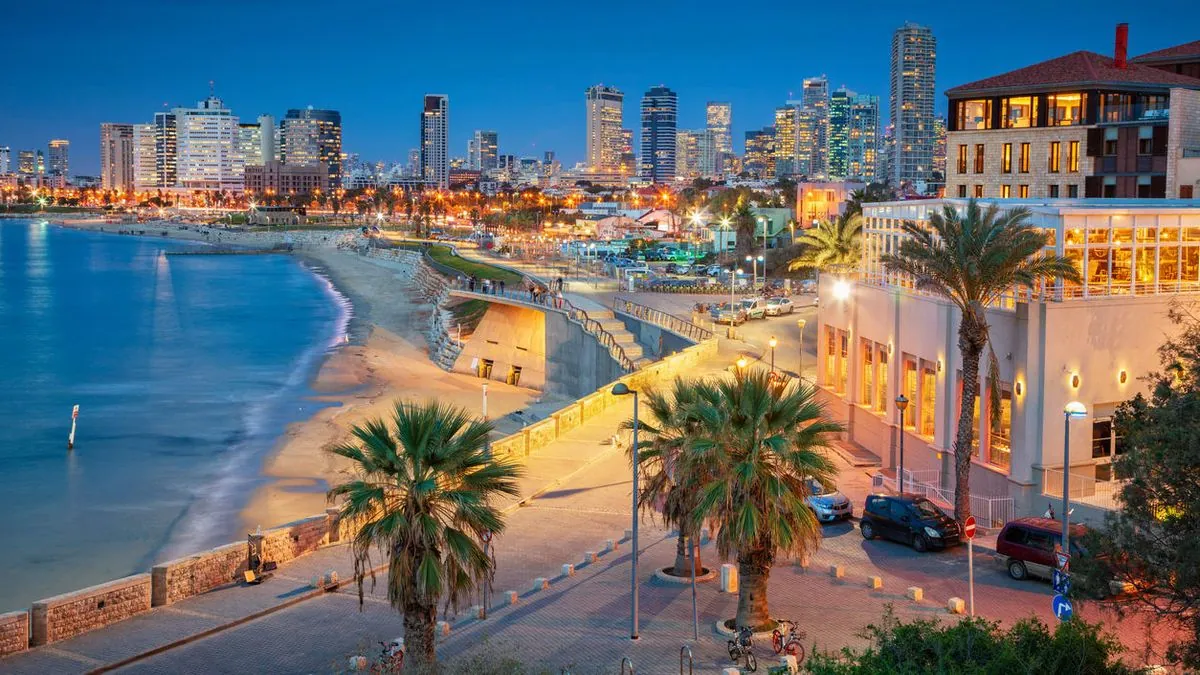Israel's Economy Falters as Gaza Conflict Persists
Israel's economy faces significant challenges due to the prolonged Gaza conflict. Tourism plummets, businesses close, and economic indicators show a worrying trend, prompting calls for a ceasefire to halt the damage.

The ongoing conflict between Israel and Hamas, which began on October 7, 2023, has taken a severe toll on Israel's economy. As the war enters its eleventh month, the impact is becoming increasingly evident across various sectors.
Benjamin Netanyahu, Israel's Prime Minister, has attempted to reassure the public that the economic downturn is temporary. However, the prolonged nature of the conflict and the potential for further escalation have created an atmosphere of uncertainty that is affecting businesses and investor confidence.
Tourism, a significant contributor to Israel's economy, has been hit particularly hard. Jerusalem's Old City, a UNESCO World Heritage Site since 1981, now sees its souvenir shops shuttered. In Haifa, Israel's third-largest city and home to the country's largest port, the once-bustling flea market stands eerily quiet.
The conflict has forced many airlines to cancel flights to Israel, further exacerbating the tourism crisis. This situation has had a ripple effect on various industries, from hospitality to small businesses that rely on tourist traffic.
Karnit Flug, former chief of the Bank of Israel, which was established in 1954, highlighted the economic uncertainty:
"The economy right now is under huge uncertainty, and it's related to the security situation — how long the war will go on, what the intensity will be and the question of whether there will be further escalation."
The impact extends beyond tourism. Israel's high-tech sector, which accounts for about 15% of the country's GDP and has earned it the moniker "Start-up Nation," is also feeling the strain. The country, known for having one of the highest numbers of start-ups per capita globally, is seeing its entrepreneurial spirit dampened by the ongoing conflict.
Economic indicators paint a grim picture. The Organization for Economic Cooperation and Development (OECD), which Israel joined in 2010, reported that among its 38 member countries, Israel's economy experienced the most significant slowdown from April to June 2024. The Bank of Israel has revised its GDP growth projection for 2024 from 3% to 1.5%, contingent on the war ending this year.

The financial markets have also reacted to the prolonged conflict. Major credit rating agencies have downgraded Israel's rating, potentially increasing the government's borrowing costs. The Tel Aviv Stock Exchange, founded in 1953, has seen increased volatility.
The war's cost is staggering. Economist Jacob Sheinin estimates the total cost could reach $120 billion, or 20% of Israel's GDP. This figure includes not only direct military expenditures but also the cost of rebuilding and compensating affected families and businesses.
The Israeli government now faces the challenging task of reducing the deficit while maintaining war efforts. Bezalel Smotrich, Israel's Finance Minister, insists on continuing the war until Hamas is defeated. However, this stance may require unpopular measures such as tax increases or spending cuts.
As the conflict persists, many experts argue that a ceasefire is crucial for economic recovery. The longer the war continues, the more difficult it will be for Israel's economy to bounce back, even with its historically resilient entrepreneurial spirit.
The situation remains fluid, and the path to economic recovery uncertain. What is clear, however, is that the longer the conflict persists, the more challenging it will be for Israel to maintain its economic stability and growth.


































